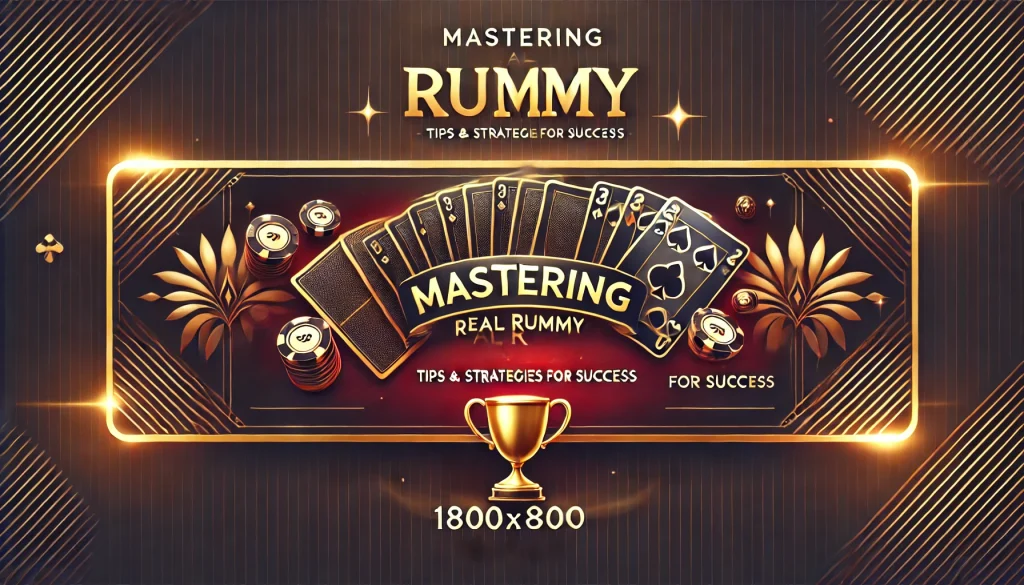Description

Learning Rummy: Techniques for rummy culture Winning The combination of skill, strategy, and a little bit of luck in the well-known card game rummy has enthralled players worldwide. The game’s main objective is to form runs & sets from a card hand. Three or four cards of the same rank but different suits make up a set, whereas three or more cards in the same suit make up a run.
In order to minimize the number 777 slots of points remaining in your hand when someone goes out, the goal is to combine these combinations before your opponents do. Depending on the version of the game being played—Indian Rummy, Gin Rummy, or Kalooki, for example—the rules may differ slightly Classic 777 Slots APK and the game can be played with two or more players. A draw pile is created from the remaining cards after each player is dealt a predetermined number of cards.
Each player draws a card from the draw or discard pile, after which they discard one card. Any player who wants to succeed at rummy must comprehend these basic mechanics. In addition to improving gameplay, knowing the rules enables players to create strategies that are specific to the tactics of their rivals. Being composed in the face of stress. Gamers must learn to maintain composure in the face of difficult hands or hostile opponents.
Decision-making during crucial game moments is greatly impacted by this mental toughness. When a player has high-point cards that are hard to meld, for example, remaining composed enables them to weigh their options without becoming frustrated. Changing to Fit Special Situations. Based on the cards dealt and the moves of opponents, every Rummy game offers a different set of circumstances.
A successful player must be flexible enough to change their plan of action at any time. If the cards drawn indicate a better opportunity, this could entail changing the emphasis from forming sets to prioritizing runs. Accepting Adaptability. Adopting flexibility improves gameplay and makes it more difficult for opponents to guess your next move by keeping them guessing.
Players can improve their chances of winning by staying one step ahead of their rivals through adaptability. One crucial component of rummy that frequently affects how a game turns out is discarding. Selecting which card to discard needs careful thought because it can give opponents important information about your hand. Throwing away cards that might help other players form their melds is a common error made by inexperienced players. You could unintentionally help an opponent who is gathering hearts for a run, for instance, if you discard a 7 of hearts after collecting two other hearts.
Players should record which cards are picked up & discarded during the game in order to become proficient at discarding. This awareness makes it possible to discard strategically, increasing your chances of forming melds while lowering the chance of helping opponents. If you are certain that a high-point card does not advance your current strategy, you should also think about throwing it away.
In addition to lowering your possible loss in the event that an opponent leaves, this strategy keeps your hand lighter & easier to control. In rummy, wild cards and jokers are strong tools that can greatly increase your winnings. These cards are extremely versatile in forming melds and runs because they can be used in place of any other card.
They are useful not only for completing combinations, though, but also for influencing your overall approach. For example, having a joker in your hand can give you flexibility so you can modify your melds when new cards are drawn. It’s crucial to think about when to use jokers to get the most impact. If you draw a joker after a run of 5-6-7 diamonds, for instance, you may decide to use it as an 8 of diamonds to finish a longer run or save it for a later time if you think you might need it for another meld.
Also, watch how you discard jokers; if you do it carelessly, it could give opponents an unexpected advantage. You can increase the number of melding opportunities and keep your opponents guessing by carefully introducing jokers into your gameplay. The main goal of Rummy is to form melds and sets, and doing so successfully calls for both strategy & foresight. Prioritizing forming sets early in the game, when you have more options, is one efficient strategy. For example, before trying to make runs, concentrate on melding cards of the same rank if you have several of them. By restricting the cards you discard, this tactic not only helps you decrease the number of points in your hand but also gives you control over the game’s progression.
The ability to identify patterns in your hand and anticipate possible draws is another crucial component of meld formation. Consider which cards—the 3 or 6 of spades—would finish a run, for instance, if you have two cards from it (such as the 4 and 5 of spades). Keeping track of the cards that opponents have drawn or discarded will help you decide which melds to go for. Having this strategic insight can help you win more quickly and have fewer points remaining when your opponent goes out. To obtain an advantage in rummy, it is essential to watch and evaluate the moves of your opponents.
Every move an opponent makes reveals information about their strategy and possible hand structure. For example, it might be a sign that an opponent is almost done with their melds if they routinely draw cards from the discard pile instead of the deck. You can use this information to guide your own choices regarding which cards to keep or discard. Knowing which cards have been discarded can also help you figure out what melds your opponents are attempting to create. You can tell an opponent is aiming for a heart-based run or set if you see them discarding a number of hearts while keeping others.
You can modify your approach throughout the game by keeping this awareness in mind, either by taking advantage of their weaknesses or by blocking their possible melds. Knowing when to quit a round in rummy versus putting your all into a win is a subtle choice that can have a big impact on your overall performance. In situations where you have a weak hand full of high-point cards that are unlikely to meld well, dropping early can be a calculated action. A decision to drop before an opponent goes out reduces your losses and maintains your position in the game as a whole. Sometimes, on the other hand, it is worth taking the chance to win, particularly if you have a strong hand with several possible melds that are just waiting to form. It’s important to evaluate the potential of your hand in comparison to what you’ve seen of your opponents; if you think you can outplay them based on their current play style and card selections, it might be worthwhile to go for that win with vigor.
It takes skill and astute judgment to strike a balance between these two strategies, but doing so can eventually increase rummy success. Rummy, like any other skill-based game, requires practice to get better. Playing with different opponents on a regular basis exposes you to a variety of tactics and play styles, which improves your flexibility and comprehension of the game’s dynamics.
Joining neighborhood clubs or online communities where rummy players congregate offers plenty of practice opportunities as well as the chance to pick the brains of more seasoned players. Also, reviewing your gameplay after every session can give you important information about where you can improve. Keep a journal of your games to monitor your progress over time and spot reoccurring errors or effective tactics that can be improved. Think back on the choices you made at pivotal moments—what worked and what didn’t.
Using resources devoted to rummy strategy, like books or online tutorials, can also help you learn more and give you new tactics to use when playing. You can improve your Rummy skills by concentrating on these areas: knowing the fundamentals, cultivating a winning mentality, becoming proficient in discarding strategies, making good use of jokers, strategically forming melds, keeping track of your opponents’ moves, determining when to drop or go for the win, and making a commitment to practice. Every component is essential to developing a well-rounded player who can confidently & deftly negotiate the intricacies of this captivating card game.lottery sambad old
